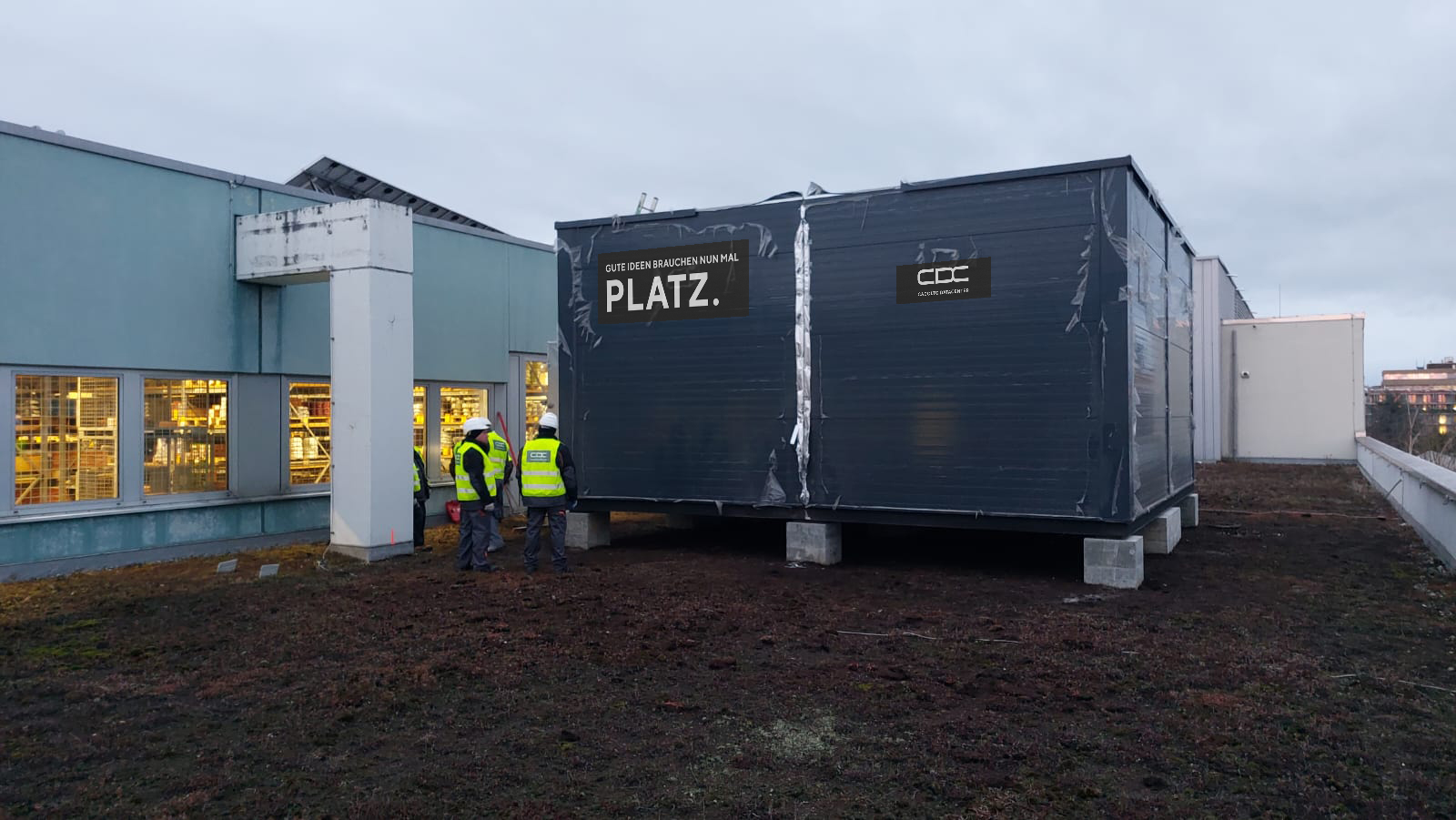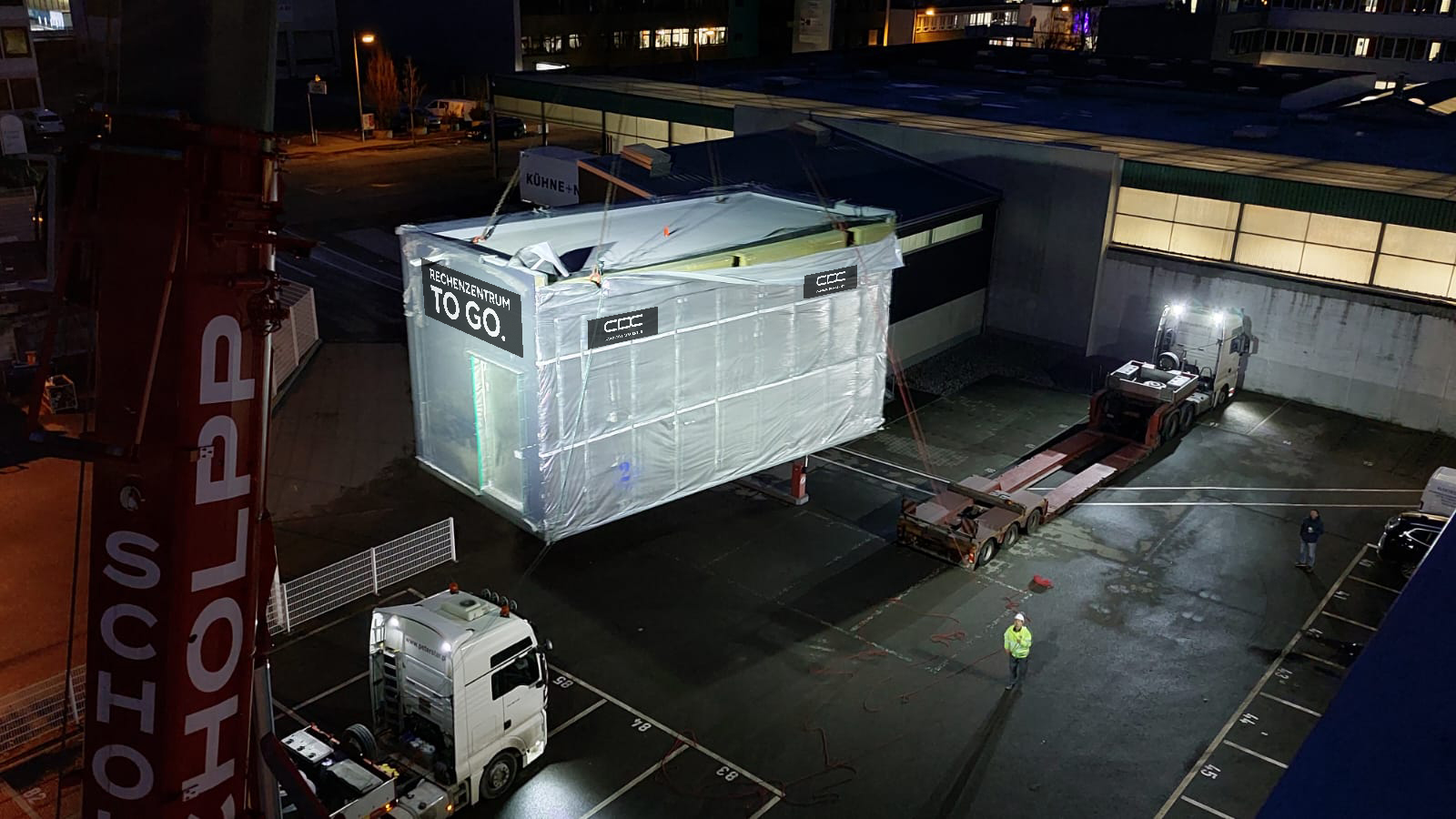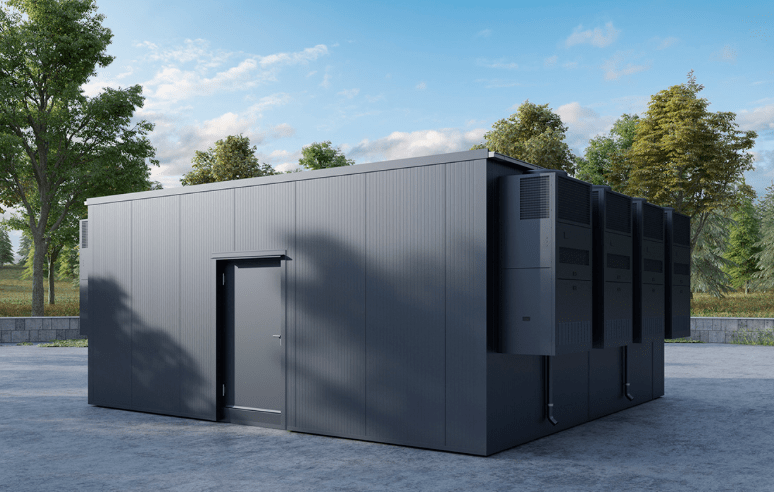Having fire protection in place is vital for every server room. Employees can get on with their work safely each day and the stored hardware and data are also protected. To properly equip your server room with fire protection you must consider a range of both preventive and reactive measures.
In this article, we will show you how fires can occur in server rooms, familiarise you with fire protection measures and ways to secure your data and IT infrastructure, and draw your attention to the standards, regulations and norms related to server room fire protection in Germany.
Sources of fire: where is the greatest risk of fire in the server room?
In server rooms, the dense arrangement of electrical devices and the intensive operations around the clock create particular challenges and dangers. Therefore, having extensive knowledge of the potential fire risks and preventive fire protection measures in server rooms is essential – only then can you ensure the safe operation of your data centre.
Typical sources of fire in a server room include:
Electrical overload
Electrical overstress is often caused by overloaded circuits or faulty wiring. This often results in the overheating of IT hardware or flying sparks that can easily ignite flammable materials. Regular checks of the electrical system and the condition of the wiring can help minimise this risk.
Damage to hardware
Hardware damage can result from outdated or malfunctioning devices (not just IT hardware). Here, too, devices can easily overheat. Regular inspection and maintenance are required to enable timely detection and resolution of any problems.
Insufficient cooling system
Lack of or inadequate cooling causes devices to overheat, which, in the worst-case scenario, can result in a fire, which risks hardware being damage and data lost. An effective, efficient cooling system is vital, as well as regular checks to ensure it is working properly.
Inadequate cleanliness
Dust and dirt can clog the vents and heatsinks of servers. Even if a cooling system is modern and well equipped, dust and dirt generally tend to cause high temperatures, overheating and, ultimately, fire. Thus, regular cleaning of server rooms is vital for an all-round protection concept.
High humidity
Excessive humidity in the server room can lead to more than just condensation. However, this in itself increases the risk of short circuits and fire. High humidity can also cause electrostatic discharges, which massively increase the risk of a fire breaking out. Therefore, continuously controlling the humidity in server rooms and keeping it at an optimal level is essential.
Incorrect storage of chemicals
Chemical reactions can be triggered by improper use or storage of substances such as cleaning products. Therefore, the use of chemicals in server rooms should be strictly controlled to ensure fire protection.
What should fire protection for server rooms consist of?
Preventive fire protection measures include compliance with building and safety regulations that require specific insulation and the use of fire-retardant, non-combustible materials (e.g. structural fire protection as per DIN 4102). Furthermore, the server room’s electrical system should be checked regularly to ensure that there is no overheating or sparking.
Another important aspect of preventive fire protection in the server room is monitoring the temperature and humidity. Overheating can cause fires in server rooms, thus they should be equipped with a sufficient cooling system (e.g. with NOVEC 1230 as a coolant) to protect against fire. Humidity should be controlled to prevent electrostatic discharge, which can also cause fires.
Various types of fire extinguishing systems are available for reactive fire protection in server rooms. Common option for IT hardware and environments are gas extinguishing systems. These use inert gases or chemicals to smother the fire without damaging sensitive IT equipment and leaving residue. Automatic extinguishing systems can be triggered by smoke or heat detectors. They are particularly effective for fighting fires at an early stage.
Alternatively, water spray or water mist systems can also be used in the server room for fire protection. These extinguishing systems produce a fine mist of water that smothers the flames while simultaneously cooling down the surrounding area. Although water can potentially damage IT systems, water mist minimises the risk of water damage and can be an effective solution, especially in larger fires.
In addition to the measures mentioned above, an effective fire protection concept for server rooms (e.g. doors and windows according to DIN 18082) should also include emergency plans and regular fire drills. IT staff should be trained to respond quickly and effectively in the event of a fire until the local fire department arrives on site. Measures should also be in place to restore data and systems after a fire.
In the server room, fire protection is an organisationally important aspect of IT security. By combining preventative measures and reactive systems, companies can protect their critical IT infrastructure and minimise the risk of data loss or downtime resulting from fires.
What do the regulations and standards stipulate?
In server rooms, fire protection is not only crucial from an operational perspective, but it is also strictly regulated by legal regulations. Several regulations and standards must be followed to ensure the safety of employees and data, and the proper functioning of the data centre. Compliance with the following regulations is fundamental for the operation of a data centre:
1. Industrial Safety Regulations (BetrSichV)
This regulation, which was last revised in 2015, ensures health and safety when using work equipment. Taking into account the working environment and the IT devices installed in it, an inspection of the technical work equipment is required before initial commissioning and after significant changes.
2. German Social Accident Insurance (DGUV) provision 3 (previously BGV A3)
DGUV provision 3 regulates the operating requirements for electrical systems and equipment. It was also last revised in 2015. Electrical systems and equipment must be comprehensively checked by a qualified person before initial commissioning and after any changes or repairs.
3. Fire-resistance class F 90 as per DIN 4102
This standard is a little older (last updated in 2005) but still valid. It outlines fire resistance classes for components and materials. Class F 90 is relevant for fire protection in server rooms. This stipulates that building materials for the server room must ensure a fire resistance time of at least 90 minutes.
4. DIN EN 1047-2 and DIN 18082
The DIN EN 1047-2 standard specifies the requirements for fire protection cabinets and room units for securing data carriers. However, it is not a question of organisational fire protection through smoke-tight doors. DIN 18082 prescribes requirements and tests for self-closing doors without fire/smoke protection properties for server room fire protection.
5. Smoke protection doors as per DIN 18095
This standard defines requirements for smoke protection doors, in particular with regard to independent closing and smoke sealing.
6. Load capacity of floors as per DIN 1055
This standard defines requirements for the load-bearing capacity of floors. A load capacity of 5.0 kN/m² is particularly relevant for fire protection in server rooms, especially if floors are raised.
7. Burglary protection as per DIN EN 1627
Access by unauthorised persons also has an impact on the fire protection of server rooms. DIN EN 1627 specifies requirements for burglary-resistant extras in data centres. Updated in 2011, it recommends RC 3 access protection for server rooms.
Regional fire protection regulations and building codes
Depending upon the location of the server room, additional regional fire regulations and building codes may apply. You must enquire about all the necessary fire protection measures for servers and rooms from the responsible authorities.





